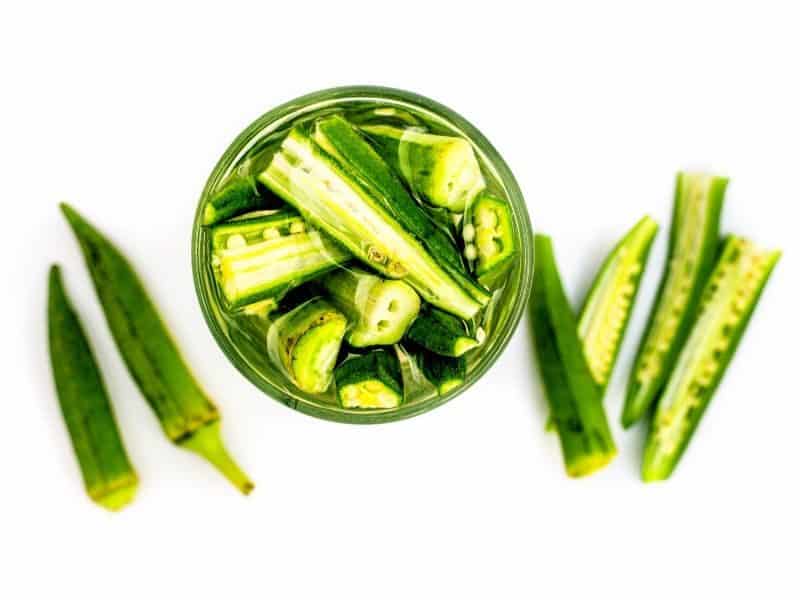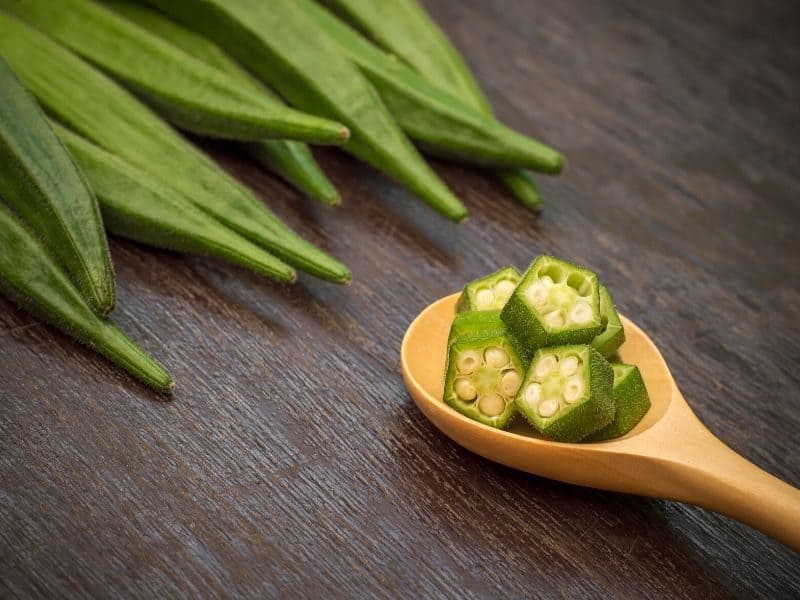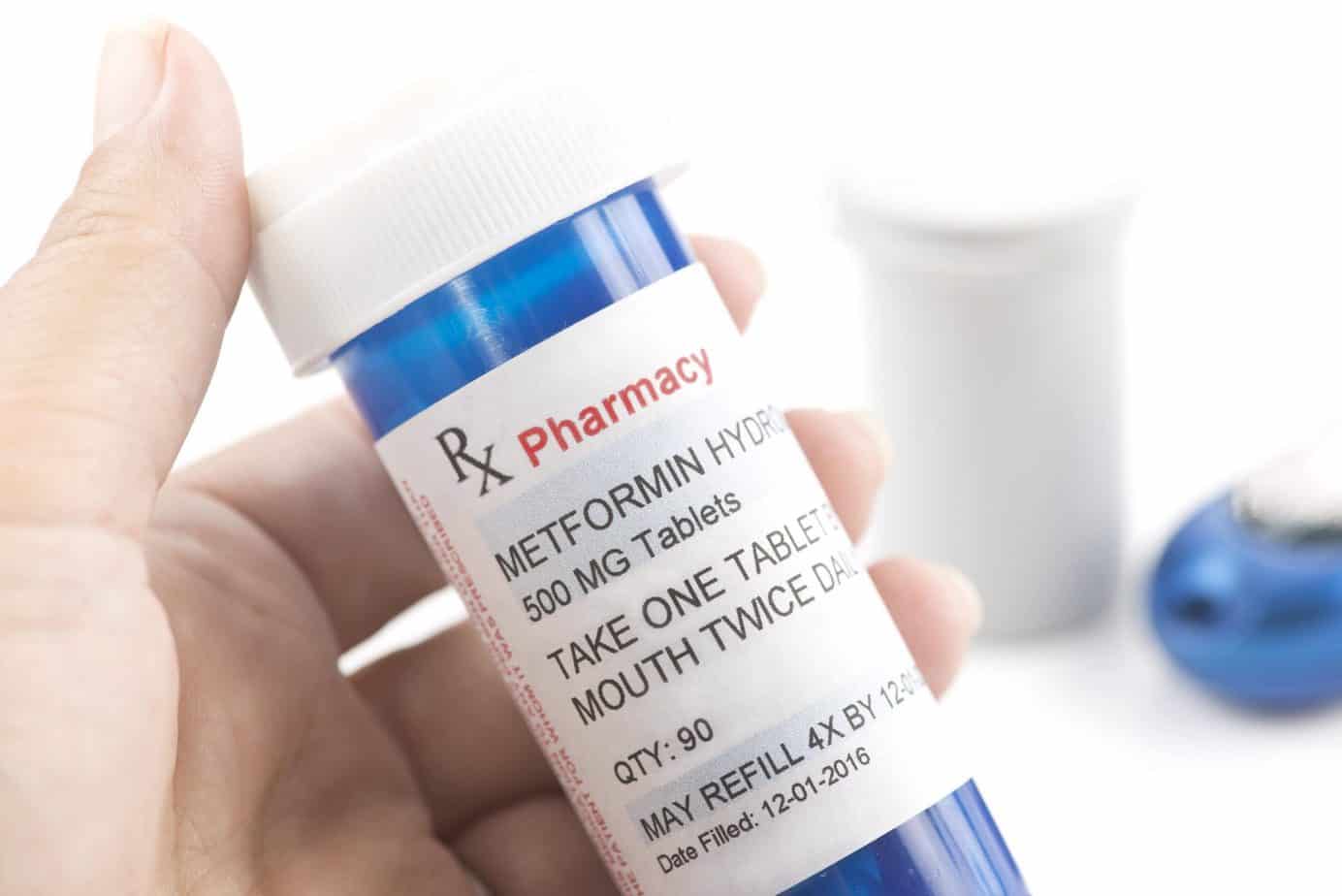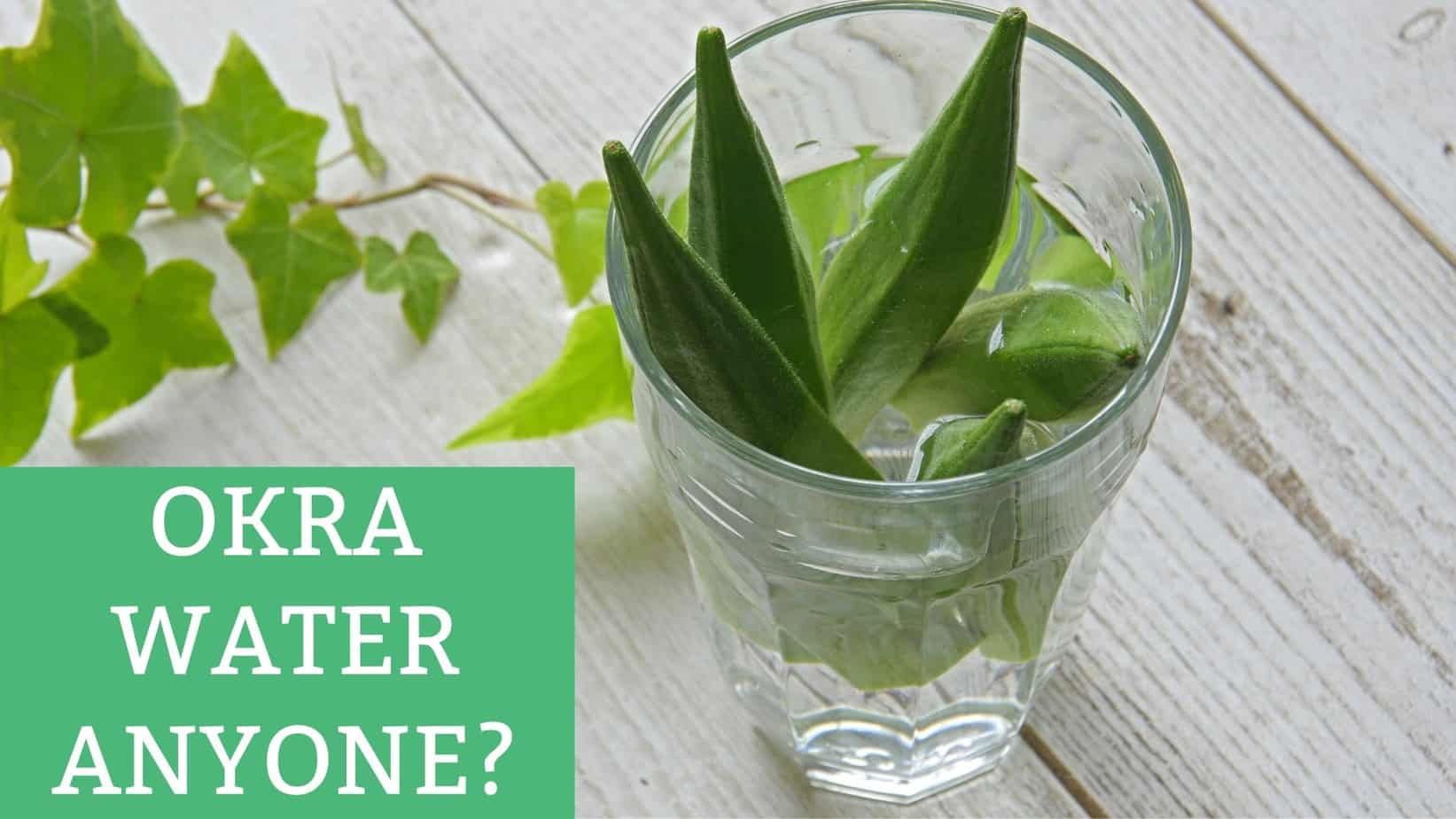If you are like me, you are frequently on the lookout for ways to get more out of a glass of water. If it helps you naturally manage an underlying condition, then that is even better! If you recently heard about infusing okra pods in water and want to learn more, then you came to the right place.
Okras have significant health benefits, especially to diabetics. The first and most important is the ability to lower and maintain optimal blood sugar. Additionally, okras are both low in calories and a great source of fiber. One serving provides as much as 12-16% of the daily fiber requirement.
But do you need to add it to your water? Let’s find out! Here’s everything you need to know about okra water, including how to reap its health benefits, if it is effective and how to make your own.
While there are lots of excellent research on okras and their positive impact on diabetes, there is little research on okra water specifically. Consequently, they don’t and shouldn’t replace a doctor-prescribed regimen. In fact, some studies assert that okras can inhibit how metformin is absorbed.

What is Okra and What Are The Benefits?
Okra is a green, slightly fuzzy plant grown mostly in warm regions such as the Middle East, the Caribbean, and South America. It is also known as ladies’ fingers or gumbo. As a member of the mallow plant family, it is related to cotton and hibiscus.
It is a very nutrient-dense and low-calorie fruit, containing only 30 calories per 100 grams (which is well above the amount you need to make okra water). It is free from saturated fat and cholesterol but is high in fiber. It is also rich in vitamins and minerals such as calcium, folic acid, potassium, vitamin C, and several B vitamins.
Infusing it in water is a quick and easy way of increasing your consumption of antioxidants, vitamins, and fiber. Additional benefits are as follows:
- Rich in Antioxidants: Okra pods and seeds are rich in antioxidants such as catechins and quercetin. Antioxidants are naturally occurring substances found in food, most frequently found in plant-based foods. They play a role in protecting cells against free radicals caused by oxidative stress.
- Rich in Folate: The folate in okra water is believed to lower the risk of certain types of cancer. This is becuase, folate, also known as Vitamin B9, helps repair DNA and create red blood cells. A high Vitamin B9 intake may help protect against cancers such as breast, gut, pancreatic, and lung cancer. A low folate levels may be a risk factor for cancer due to their role in controlling gene expression and the making and repairing of DNA. With low folate levels, the accumulation of unstable, fragile DNA strands can occur.
- Protective against certain cancers: In 2014, a study found that lectin from Okra reduced breast cancer cell growth by 63%! However, these tests were conducted on human cells, and not human subjects themselves, so more studies are needed to increase confidence levels.
- High in vitamin C : A study found that those with higher vitamin C levels in their blood were less likely to have a stroke. This is because vitamin C helps lower blood pressure and keep blood vessels healthy.
Can Okra Water Help With Diabetes
The answer to that is not quite so clear-cut as there have been no studies on the effectiveness of okra water specifically. However, here are some theories on why it may work:
Okras Have Minimal effect on Blood Sugar Levels
100 grams of Okra only contains 7.45 grams of carbohydrates. Additionally, Okra has a low glycemic index, making it ideal for blood sugar control. Okra doesn’t just keep blood sugar from rising undesirably; it can lower and control blood glucose levels. This is especially important in patients that have diabetes.
High blood sugar levels also trigger inflammation and can be a concern for diabetics. It can cause insulin resistance and further complicate the condition. Inflammation is a natural response within our body to protect us from germs and bacteria. However, some people experience chronic inflammation, which means that the body becomes inflamed even when there isn’t a threat warranting the response. Inflammation can end up damaging blood vessels. Plaques then cover the damaged blood vessels. However, if the inflammation is chronic, they also break down and move around the body and damage organs.
Okras are High in Fiber
Eating high-fiber foods is recommended for those with diabetes, as fiber helps control blood sugar levels and insulin sensitivity. Fiber also helps to keep you fuller for longer, which helps ward off between-meal snacking on foods that can spike blood glucose levels. As one serving of Okra contains between 3-4 grams of fiber, it is considered a good source of this nutrient.
Okras Have Anti-fatigue Properties
Not only are people with diabetes advised to eat a healthy diet to manage their condition, but an active lifestyle is also recommended. The anti-fatigue properties of Okra can give people more energy to be active and allow them to recover more quickly from strenuous physical activity.
Okras Help Maintain Cholesterol Levels
As people with diabetes are more likely to experience high cholesterol, keeping blood vessels and blood pressure in a healthy range is pivotal in patients with this condition. Okra is one of many foods that can help get cholesterol levels under better control because of its high fiber content and strong antioxidant properties.
How To Make Okra Water At Home

Okra water is made with young, immature green okra pods. You can soak 3 to 5 pods in a glass of water overnight and then remove the pods in the morning before drinking. Make sure to cut the ends off of the pods so some of the juices can seep into the water. You can also infuse additional flavors such as mint, lemon, or berries to hide the bitter taste while still reaping the benefits.
Alternatively, you can slice the Okra before putting it in your water to extract a higher amount of its beneficial properties. While this allows more of the juices to infuse into your water, it can affect the taste. If you don’t like the taste, it is probably wise not to prepare it this way.
If you prefer not to use Okra in water, especially if you don’t want your water to get a thick consistency, you can stick to just adding it in soup and salads. Remember, infusing Okra in water is not the only way to reap the health benefits. Okras was consumed long before okra water became popular.
Additional Ways of Incorporating Okras in Your Diet
As an Okra lover myself, I find drinking okra water unappealing, especially with the snotty-like consistency of the juice. Therefore, it will be wrong not to share the more appealing ways of ingesting okras that are downright delicious and keep the vitamins and nutrients intact.
Okra Soup
The sticky juice inside the plant is a popular ingredient in soups, often used as a means of thickening them. This is also helpful for vegans making soup as they aren’t able to use dairy cream as a thickener; the added calcium in okra would be an added benefit in this instance.
Okra originated in Africa and was brought to different parts of the world like India, Brazil, and the US. Many slaves in the South used this dish to bring their heritage with them to the table. This staple okra dish is often eaten with a side of rice, millet, or corn mush. The Okra were sliced into small thin pieces then tossed in a stew along with onions, tomatoes, and hot peppers.
Here is a simple recipe you can make at home that serves 8 people:
Ingredients
- 4 cups chopped tomatoes
- 2 cups chopped Okra
- 2 cups chopped potatoes
- 1 (6 ounces) can tomato paste
- 4 cups chicken stock
- 1 pound ground beef
- ½ tablespoon garlic powder
- ½ tablespoon celery salt
- ½ tablespoon onion powder
- 1 small onion, chopped
- 2 cloves garlic, crushed, or more to taste
- 3 tablespoons butter
Add other vegetables you would like or swap out the ground beef if you want a vegetarian option.
Instructions
Add your Okra, tomatoes, potatoes, and other vegetables you’d like to add to a pot. Add your stock and bring to a boil over medium heat. Simmer for about 15-30 minutes until the vegetables soften.
On another pan, heat your butter, then add onion and garlic when it stops bubbling. Here, cook your ground beef and add to your large pot when done.
Simmer and cook your soup until your Okra and beef are good to go. Just serve with a bowl of rice, and that’s it!
Okra Salads
In the late 1800s, when the presence of Okra in Gumbo became common, many cooks ventured out to try other recipes with the vegetable. Okra salad is easy to make, uses fresh ingredients, and can provide all the health benefits you’ll need. The Okras are sliced lengthwise into 1/2 inch pieces. They are often boiled first in salted water, drained, and mixed with other ingredients. You can add a variety of herbs and spices, beans, or even corn to your salad. Finish off with a dressing of choice or olive oil.
Pickled Okra
Pickled Okra is another recipe that people can do if they want to avoid the bitter taste of Okra. This can be a perfect snack to munch on when it’s done, and it also softens the vegetable’s peel.
To make your pickled Okras at home, follow these steps:
Ingredients
- 1/2 pound okra pods
- 1 small clove garlic
- 1/2 teaspoon dill seeds
- 1 cup cider vinegar
- 1 cup water
- 1 1/2 teaspoon pickling salt (or 2 teaspoons kosher salt)
If you prefer a spicy pickle, you can add chile peppers to the mix.
Instructions
The first thing to do is to clean and trim your Okra. Remove any brown bits and ensure that your pieces can fit in your jar. Make your brine with cider vinegar, salt, and water, and bring it to a boil. Combine your ingredients in your jar: pickles, garlic, brine, and your peppers if you opted for it. Let the jar sit for a minimum of 1 week up to 4 weeks, then enjoy!
Not All Okra Dishes Are Made Equal
There may be several Okra recipes you can rely on to give you health benefits. However, some Okra combinations and recipes should be avoided. One that should be avoided is fried Okras. Fried food should generally be avoided when you have diabetes. A study found that people who eat fried foods 4-6 times a week have a 39% increased risk for type 2 diabetes while eating fried food every day can give a 55% increased risk. The oil used can also lead to weight gain, higher cholesterol, and higher blood pressure.
So Is Okra Water Safe?

While Okra for diabetes looks promising, do not stop taking medication and other treatments without first getting permission from your health practitioner. Consider this as a supplement used in conjunction with other therapies or medications for managing your diabetes.
If you’re taking metformin, you need to consult your doctor before trying okra water. One study on rats found that Okra can inhibit the absorption of metformin. Although, blood sugar levels remained lower with okra supplementation despite the malabsorption of the medication.
Vitamin toxicities caused by consuming too much of a particular vitamin can be potentially dangerous depending on the vitamin and the extent of the toxicity. Vitamins B and C, which are among the most prevalent vitamins in okra water, are water-soluble. So excess amounts of these are excreted in the urine rather than accumulating in the body. As a result, toxicity is unlikely to occur.
The Bottom Line
Okra has a plethora of benefits that make okra-infused water a worthwhile addition to your diet, especially if you want to drink it for the extra vitamins, minerals, and antioxidants. This infusion is just one of the many healthy ways to keep hydrated and not drink your calories.
There is a lot of excellent research on okra fruit and its impact on effectively managing diabetes. But, should okra water replace your doctor-prescribed regimen? The answer to that is a resounding no! Regardless, it is worth a try as a supplemental strategy. However, do note that this content provides generic information only. Always consult a specialist or your doctor for more information on how to manage your symptoms, as untreated diabetes can be fatal.







